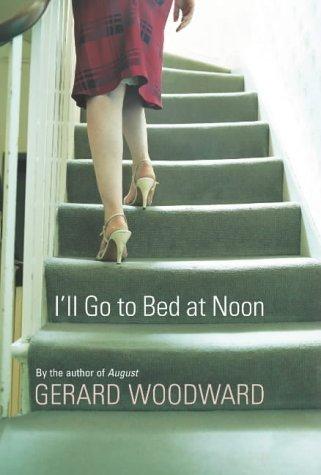The Dominion Post – October 16, 2004

In The Big Book of Alcoholics Anonymous there are testimonies written by recovering alcoholics, who during their drinking days could have been described variously: as plateau drinkers (who top up regularly, thus slowly killing their livers); binge drinkers (who may also be labelled as a manic depressives or psychopaths); or social drinkers who descend into pathological boozing after encountering life tragedies.
These alcoholic types are fleshed out in British poet Gerard Woodward’s big sprawling novel I’ll Go to Bed at Noon, shortlisted for the Man Booker Prize. Based on his family, it’s the sequel to his acclaimed first novel August (2001), in which he introduced the Joneses of north London. Set in the 1960s, that book is about camping holidays the family spent in Wales. I’ll Go to Bed at Noon is set on home turf in the 1970s, and by book’s end (just before Thatcherism) the drink has depleted the eccentric family.
The alcoholic gene comes from the mother Collette – both her brothers, Reg and Janus Brian, are alcoholics. The disease grips Janus Brian in later life, after he finds his wife dead in front of the television. He first drinks his supply of potent home-made wine, then hoes into cases of gin. Once a neat and ordered man, he soils the carpet while drunkenly stalking his house naked. Collette, who herself moves from a glue-sniffing addiction to an attachment to barley wine and sleeping pills, visits to clean up the mess.
Woodward’s saga is mainly played out in Collette and Aldous Jones’ ramshackle house and the nearby pubs, many of which their eldest son Janus (named after Janus Brian) has been barred from. Janus, a gifted, though unrealised classically-trained pianist, terrorises the family when drunk, and after one psychotic incident too many, he is banned from the family home by court order. He is then imprisoned for threatening to kill the man who sacked him from a job as a hospital porter for stealing a brain from the hospital’s morgue.
The family’s trials don’t end there. Central to the story is Janus’ dependency on his “fallen angel” mother, whom he cons into being his rescuer. One suspects the Woodward is Julian, the youngest of Collette and Aldous’ four children. He started experimenting with novel writing when he was nine, fantasises about killing his big brother, and is chastised for doing his homework at family gatherings at pubs.
Though a grim tale, I’ll Go to Bed at Noon has many tender and funny moments. Woodward doesn’t moralise or glamorise, and whether or not he takes out the Booker, his novel’s a winner.